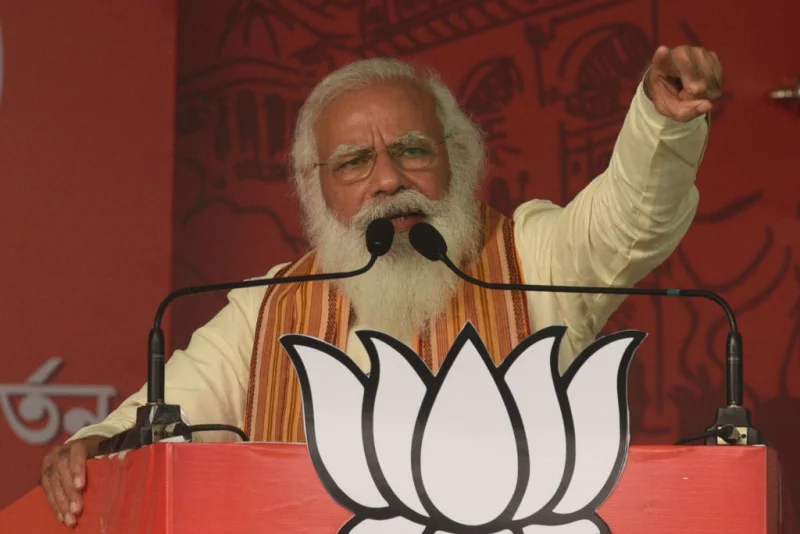
As India braces for the upcoming 2024 elections, the stakes could not be higher. With the ruling Bharatiya Janata Party (BJP) tightening its grip on power and veering dangerously towards authoritarianism, this election may well represent the last chance for Indian democracy to pull back from the brink. The global community watches with bated breath as India’s fate hangs in the balance, recognizing the significance of this pivotal moment in history.
Over the past decade, the BJP has systematically undermined democratic norms and institutions, embarking on a relentless campaign to suppress dissent and consolidate power. The party’s agenda, driven by Hindu nationalism, poses a fundamental challenge to India’s secular identity and pluralistic ethos.
Under Prime Minister Narendra Modi’s leadership, India has witnessed a troubling erosion of democratic norms. The BJP’s agenda, driven by Hindu nationalism, threatens to dismantle the secular foundation upon which India’s diverse democracy was built.
A key concern in the upcoming election is the BJP’s pursuit of a two-thirds majority, which could grant the party unprecedented power to reshape India’s constitutional framework. Such a majority would enable the BJP to amend the constitution in ways that undermine the secular fabric of the nation and infringe upon the rights of marginalized communities. The prospect of constitutional amendments poses a grave threat to the principles of pluralism and religious freedom enshrined in India’s founding documents.
The 2024 election represents a crucial opportunity for Indian voters to defend the foundational values of democracy against the encroaching tide of authoritarianism. By rejecting the BJP’s communal agenda at the ballot box, voters can reaffirm their commitment to religious tolerance, pluralism, and inclusivity. It is imperative for citizens to recognize that voting against the BJP is not merely a political choice but a moral imperative to preserve the essence of Indian democracy.
India’s recent classification as a hybrid regime by international observers underscores the concerning erosion of democratic norms under Prime Minister Narendra Modi’s government. The concentration of power and the erosion of democratic institutions represent a troubling trend that poses a warning sign for the future of democracy not only in India but also worldwide. The apprehension of political opponents, such as Arvind Kejriwal, through coercive bureaucratic and judicial measures, further exacerbates concerns about the state of democracy in the country.
A recent investigative report by CNA Insider has shed light on a sprawling network comprising 750 counterfeit media entities operating from India. These outlets, spread across 119 countries and utilizing over 550 domain names, underscore the extensive reach and systematic nature of the fake news ecosystem. This organized infrastructure reveals a concerted effort to manipulate information for malicious ends, representing a significant departure from the inadvertent dissemination of false information.
The Bharatiya Janata Party (BJP) has faced scrutiny over its purported utilization of counterfeit news as a political tool. The investigation has pinpointed this network as instrumental in advancing the BJP’s objectives, both domestically and internationally. Disinformation campaigns have been directed at opponents with the aim of shaping public perception in favor of the BJP. This methodical dissemination of fake news poses a threat to democratic processes, as it exploits voters by promulgating fictitious narratives.
Amidst this democratic recession, regional parties emerge as crucial counterbalances, championing the interests of diverse communities and challenging the BJP’s hegemony. Meanwhile, the Congress party presents a vision for inclusive governance, focusing on pressing issues such as unemployment, rural distress, and religious polarization. However, its ability to effectively campaign has been hampered by alleged government interference, indicative of the BJP’s efforts to stifle political opposition.
The Congress party’s vision for inclusive governance emphasizes pressing issues such as unemployment, rural distress, and religious polarization. In contrast to the BJP’s divisive rhetoric, Congress advocates for policies that promote social cohesion and equitable development. However, the BJP’s alleged crackdown on political opponents and efforts to create an uneven playing field for the elections raise concerns about the integrity of the electoral process.
The decline of democracy in India holds implications beyond its borders, impacting regional stability and global democratic values. Upholding democracy in India is not only essential for the well-being of its citizens but also for promoting peace and democratic norms worldwide. Mature leadership and a commitment to democratic principles are imperative for India to fulfill its role as a global democratic leader.
As Indian voters prepare to cast their ballots, they must recognize the gravity of the moment. This election is not merely about political parties; it is about preserving the soul of the nation and reaffirming India’s commitment to democratic principles. The choice is clear: stand against authoritarianism, uphold democracy, and pave the way for a brighter, more inclusive future for India and the world.
